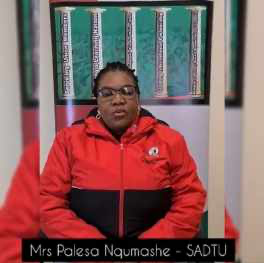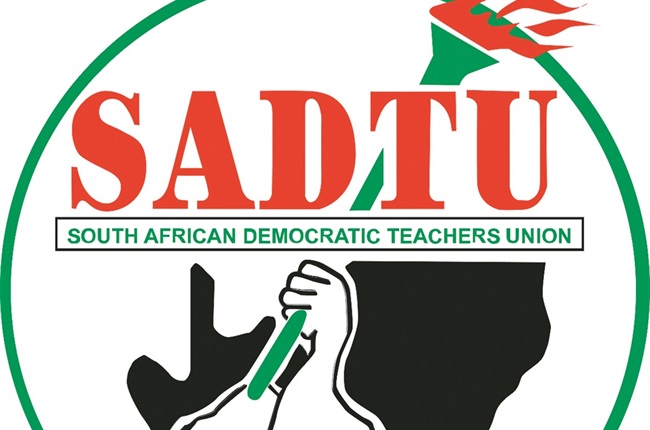UNIONS EXPRESS DISAPPOINTMENT AT MATRICULANTS’ RESULTS
 By: Siphiwe Ngcongco
By: Siphiwe Ngcongco
Kimberley – The South African Democratic Teachers Union (SADTU) in the Northern Cape is disappointed at the low provincial percentage matriculation mark achieved in 2023, a slight progress of 2% compared to the previous year.
The comment follows a joint statement issued by the Northern Cape Premier, Dr. Zamani Saul and MEC for Education, Zolile Monakale announcing the provincial matric results.
“The Northern Cape pass rate for 2022 has increased by 2,8% from 71,4% to 74,2%. It is noteworthy that these improvements have not surpassed the national average of 80.1%. The Northern Cape is 6% below the national norm”, remarked Saul.
The Northern Cape Provincial SADTU General Secretary, Palesa Nqumashe, said they were disappointed that the province ranked second last. However, the fact that it has improved by 2.8% is enough cause for celebration.
“The province should not have dropped. We appreciate the slight increase, but we still believe our province does not belong in the eighth position nationally. The Northern Cape is the smallest province with the least population. We should be performing better than other provinces”, said Nqumashe.
The General Secretary implored the Department of Education to prioritise the lower grades as the foundation phase is the crucial stage. Intervening in Grade 12 is very late. The Department must also revise its budget to face economic challenges.”
Northern Cape Provincial National Teachers Union (NATU) General Secretary Doctor Ngema said the NCDoE should revise the year’s academic strategies and not be repetitive. Ngema highlighted that the 2023 class might be disadvantaged by water and load-shedding challenges, but they are at an advantage compared to the previous class, which studied under coronavirus conditions.
“The province cannot be the second last just on top of Limpopo. The learner population in Limpopo is far greater than our population. Priority to rural and township learners is vitally needed as they lack resources. Disadvantaged academic institutions in poverty-stricken areas cannot shamelessly drown provincial results. Some of these schools are sponsored by corporate organisations, working hand in hand with DoE. We need to put those rural and township schools under the microscope”, commented the NATU official.
The Northern Cape Democratic Alliance Provincial Spokesperson on Education, Priscilla Isaacs, said they are concerned about the systematic challenges and socio-economic hardships that have affected the quality of education. “Regardless of improved results, the Northern Cape is the second-worst performing province in the country. It seems like the province is just not living up to its full potential,” she said.
Ngema pleaded with parents to be involved in their children’s education, from evaluating their classroom work to assigned homework. Moreover, they must monitor their mental health condition as it may play a significant role in their academic performance and assist in preventing academic blackouts or learner meltdowns.
A parent, who declined to be named, said. “I woke up with mixed emotions. I do not know if I should be happy with this 74.2 percent improvement or be sad as a majority of that percentage will contribute to the unemployment rate of previous matriculants”. The anonymous parent wisely added, “It is not the end of the world not being accepted at university or obtaining funding to further their studies. However, one can take advantage of the local TVET College”.
MEC Monakale mentioned during the press conference that they were fighting a low budget and a shortage of resources but vowed to try their utmost to improve service delivery this year.


Comments are closed.